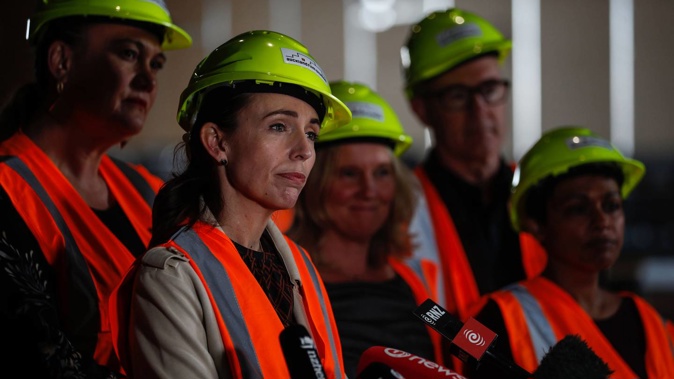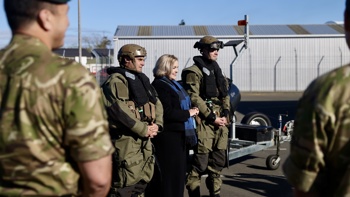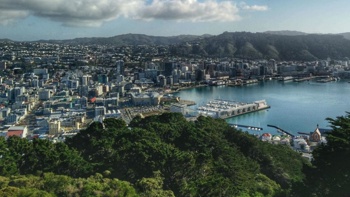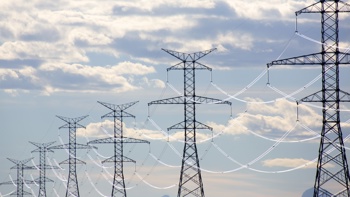
Prime Minister Jacinda Ardern is downplaying the poor performance of left-leaning candidates in the local elections and the potential significance to the general election next year.
"I don't draw comparisons from local government elections into central government, and nor have I ever done that," she told reporters in Christchurch today.
Local body elections on Saturday saw a political shift to the right and Labour-backed candidates losing in two main centres.
Labour-supported Wellington candidate Paul Eagle and Auckland mayoral hopeful Efeso Collins lost by significant margins.
Although Green candidate Tory Whanau took out the Wellington mayoralty, there were shifts to the right in Auckland, Christchurch and Dunedin, along with in some smaller centres.
/cloudfront-ap-southeast-2.images.arcpublishing.com/nzme/RXY7TPIPSTX2JQECUKXMQZIC3E.jpg) Prime Minister Jacinda Ardern is visiting businesses in Christchurch today. Photo / Nathan Morton
Prime Minister Jacinda Ardern is visiting businesses in Christchurch today. Photo / Nathan Morton
Ardern said national politics often did not follow local politics, noting that right-wing mayor John Banks was in charge in Auckland under the previous Labour Government and Labour's Len Brown was mayor under the John Key-led National Government.
Labour would continue to endorse local politicians it was aligned with, she said.
Asked whether the results were a backlash to the Government's Three Waters proposals, she acknowledged that there had been a lot of debate about freshwater reforms within councils.
However, she had not seen any candidate openly campaign on alternative reforms.
- Politics Monday: Chris Bishop and Ginny Andersen chat following the local body elections
- The Sunday Panel: Aftermath of the local body elections
- Local Body elections: The new mayor and councillors by town
- Roman Travers: How do we encourage people to vote in local body elections?
"If we stick with the status quo, [it] means thousands of dollars in rate rises for New Zealanders. No one wants that. That's why we are having to proceed with reforms to water infrastructure."
Ardern said she had been in touch with new Auckland Mayor Wayne Brown and that Labour remained committed to working closely with all mayors regardless of their opinions because local and central government had "many shared challenges".
Speaking about the Ukraine conflict, Ardern said New Zealand was not immediately planning to follow Australia's lead in increasing its military support.
New Zealand's contribution of 100 military to train Ukrainian troops was significant given New Zealand's size and distance from the conflict, she said.
Further sanctions would be announced this week against Russia, she said, in particular with regard to its recent referendums and "sham claim" that it had the ability to annex parts of Ukraine. The sanctions would cover Russian people and trade between the two countries, she said.
LOCAL ELECTIONS
There was also record low voter turnout, which has sparked calls from Local Government New Zealand for an independent review and a closer look at online voting.
Voter turnout across the country was down to a record low 36 per cent, though it is expected to increase marginally once all votes have been counted.
Just 31 per cent of Auckland's nearly 1.2 million eligible voters took part in this year's local elections - the lowest turnout by a long stretch since the Super City formed in 2010, when a record 50.1 per cent voted.
Opposition parties National and Act have come out swinging saying the results are a rejection of Labour's agenda, particularly for increasingly unpopular Three Waters reforms (however, they were already unpopular before the local elections, even with some Labour mayors).
Take your Radio, Podcasts and Music with you









